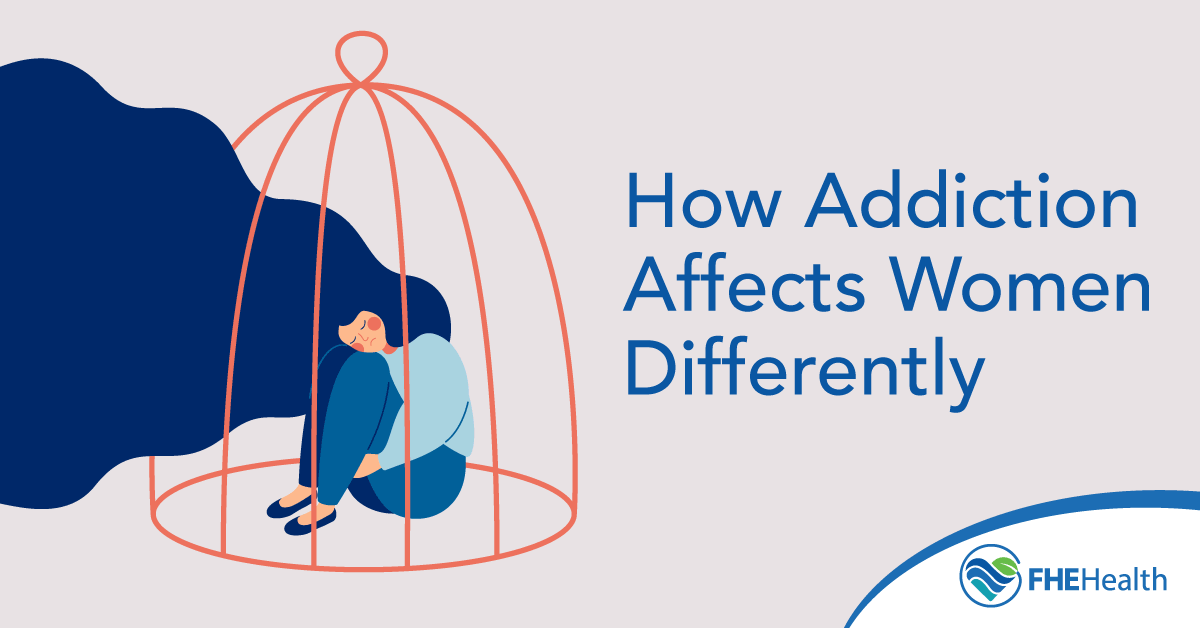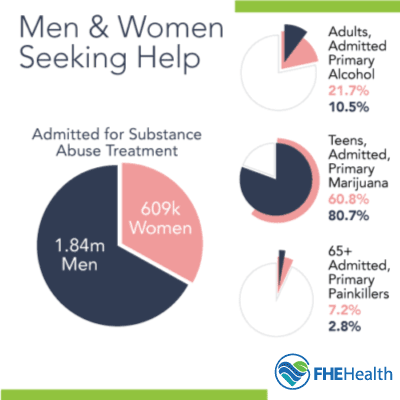
Both men and women suffer from substance abuse. Neither one suffers more or less than the other, but they do suffer in different ways. If you are a woman, it is critical to understand exactly how addiction can impact your health. It plays a role in your emotional as well as physical health. Learn how addiction affects women to know the right path to take to achieve a healthy future ahead of you.
The Physical Differences
Alcohol and drug abuse impacts the health of both men and women. Women can suffer a number of physical changes as the result of addiction. Understanding this is essential to understanding the role of alcohol and drug abuse in your life.
Physically, drugs and alcohol can impact women in ways such as:
- Limiting fertility
- Changing menstrual cycles
- Limiting breastfeeding (and potentially exposing a child to substance abuse through breastfeeding)
- Changing hormones through the body
- Speeding up menopause
- Impacting the health of a baby, creating concerns related to miscarriage, and leading to premature delivery
It is important to recognize these ways in which addiction impacts women. For many people, the use of drugs and alcohol does not stem from simple mistakes or poor behavior.
According to the National Institute on Drug Abuse, many women begin using drugs and alcohol to cope with exhausting, pain, and weight. Some use it as a way to self-treat mental health concerns, too. As you can see, these are very limiting and worrisome risks women face with substance abuse.
There Is Much More
There are many additional ways that drug use impacts a woman. Take a look at some of the evidence found based on research from the National Institutes on Drug Abuse.
Drugs Affect Women Differently
Did you know that, typically, it takes a much smaller dose of any type of drug to create an impact on women? Many times, drugs need less time in the body for women to become addicted to them. In other words, depending on the drug, it may be easier for women to become addicted to it compared to men.
Women Respond Differently
Another difference is in the way women respond to drugs. For example, in some cases, women may develop strong addictions that, when the drug is no longer available, leads to intense cravings. Studies have shown that, while are experienced by both men and women, women might experience stronger cravings. This difference can create a more difficult recovery for women. Many women are likely to relapse because of the impact drug cravings has on their lives.

One of the reasons for this has to do with the sex hormones in women. The presence of sex hormones in women makes them more sensitive to the impact that drugs can have. As a direct result, drugs can be more addictive and more impactful both mentally and physically to women than they are to men.
Brain Changes
Some drugs can change the way the brain works. This often leads to a formal diagnosis of drug dependency. In women, it tends to occur sooner than in men. That is, more women experience changes in their brain when using drugs than men do. And, those changes are different, creating a variety of risks for the woman.
Drug Use Differences
 Women are a bit different in terms of the way they typically use drugs as well. Another National Institute on Drug Abuse study finds that women are likely to use heroin at a younger age and they are also less likely to inject it. In addition, they are likely to use smaller amounts over the long term.
Women are a bit different in terms of the way they typically use drugs as well. Another National Institute on Drug Abuse study finds that women are likely to use heroin at a younger age and they are also less likely to inject it. In addition, they are likely to use smaller amounts over the long term.
Opioids are another concern. Some studies indicate that women are more sensitive to pain than men are, and they develop conditions like chronic pain sooner. As a result, many use prescription painkillers for treatment. Women are also more likely to use opioids (including prescription drugs) to self-medicate for conditions such as tension, anxiety, and depression.
Individual Addict Differences
Did you know that women who are the victims of domestic violence are at a higher level of risk for using drugs or alcohol than men with similar abuse? This stems from the need many women have to cope with the abuse; they then turn to drugs to stop the pain and emotional turmoil the abuse caused.
Women who have mental health disorders such as anxiety, depression, and panic attacks are also more likely to use substances. And, the flip side is true, too. Women who use drugs and alcohol are more likely to suffer from these mental health risks.






